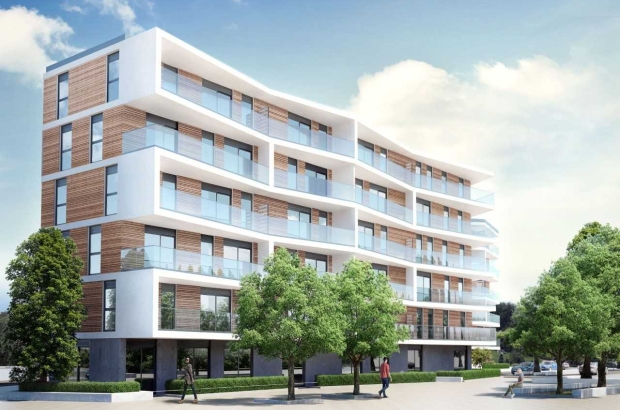- Daily & Weekly newsletters
- Buy & download The Bulletin
- Comment on our articles
Average apartment prices in Brussels exceed €200,000 in all communes
For the first time ever, there is no municipality within the Brussels region where the average price for an apartment is less than €200,000, new figures show.
While overall property prices in Brussels fell by 3.6% in the first nine months of 2023, the Belgian Federation of Notaries report found that prices remain higher in Brussels than those in Flanders and Wallonia - and the price of apartments continues to grow.
The average cost of a flat in the capital rose by 1.5% to €285,338. In Brussels' cheapest municipality, Anderlecht, the average apartment now costs €205,328.
While lower than the rise seen in Flanders (+3.9%) and Wallonia (+2.3%), Brussels flats remain more expensive than in Flanders (€277,775 on average) and Wallonia (€203,535).
“We can explain this anomalous trend by prices of new-build flats, which have pushed up the averages for all flats,” said Bart Van Opstal, spokesman for Notaris.be.
“The cost of a new-build flat has increased as building materials have become more expensive and the wages of construction workers have been indexed. This is passed on in the price. In Brussels, there is simply no more room for new-build flats. Demand there far exceeds supply.”
Figures from the federation show that the number of real estate transactions fell by 3.1% in Belgium, especially in the winter months of January and February and in the summer months of July and August.
Flanders in particular experienced the biggest decline in purchases since 2022 with a 5% decrease, while rates were more stable in Brussels (-1.7%) and Wallonia (+0.1%).
“Despite the cooling of the real estate market, we are still very much above the level of the period before the pandemic,” said Van Opstal.
“Compared to the first nine months of 2019, there were 10.7% more property transactions in our country this year.”
The average price for a house in Belgium came in at €321,993 in the first nine months of 2023, up 0.9% over last year. Van Opstal believes this indicates a stabalising of the market.
“For the first time in many years, there are no substantial price increases in Belgium this year – especially if you take inflation into account, we can even speak of a stabilisation,” he said.
“Over the past five years, house prices rose by 28%, so on average by more than 5% a year. We can already say with certainty that this trend has stopped in 2023.”
However, there are regional differences: Flanders experienced a bigger increase in the price of housing (+2.3%) than Wallonia (+1.1%) and its average home price of €355,941 is much higher than the French-speaking region’s €238,104, but lower than Brussels average of €556,081.
Ixelles is the most expensive municipality for would-be home buyers with an average price tag of €772,089, closely followed by Woluwe-Saint-Pierre (€770,645, the most expensive municipality last year) and Etterbeek (€701,089).
Molenbeek remains the cheapest municipality to purchase a house with an average price of €356,897, although the difference with the municipality of Ganshoren (€357,167) is becoming negligible due to the remarkable drop there.
The municipalities where property prices are increasing the most are Koekelberg (+9.0%) and Watermael-Boitsfort (+7.6%).
The average age of someone buying a house has also risen to 39.5 for Belgium and 40 for the capital.
“That is a high average age,” Van Opstal said. “In Flanders, there is only one province that attracts an even older crowd: West Flanders. There, the average age is 41, but that is because it is mostly older people who can afford a second home by the sea.”
















